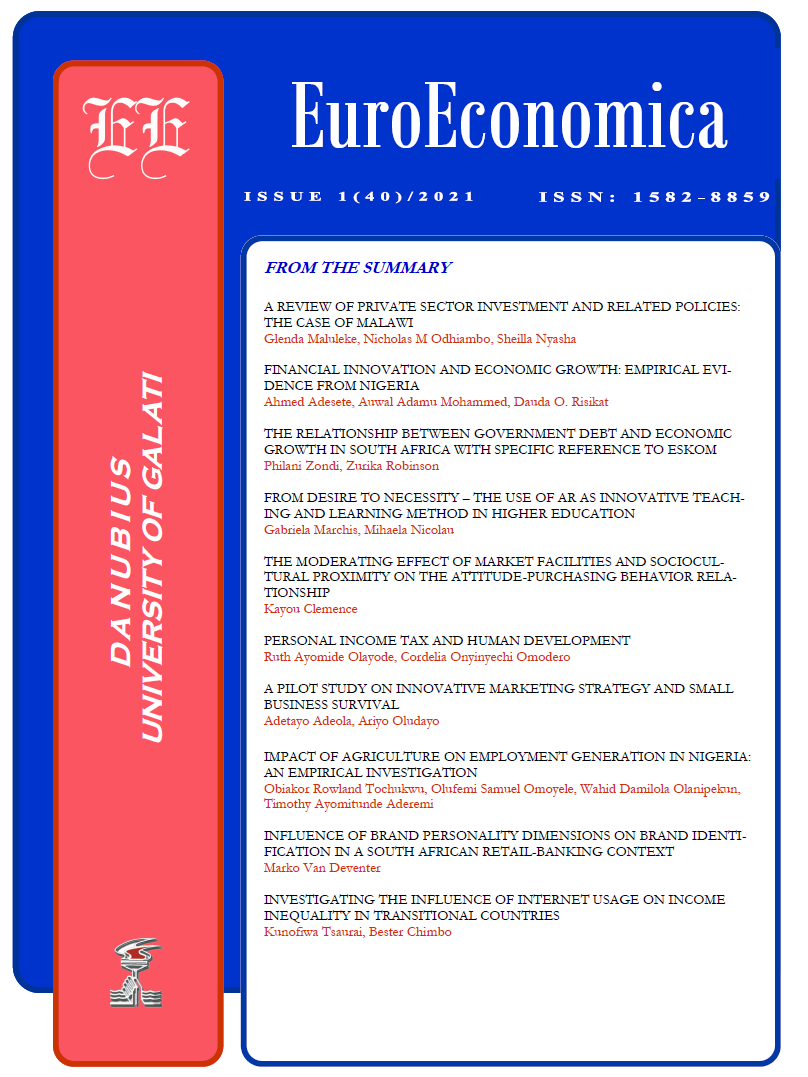Trade Openness and Poverty Reduction in Nigeria
Trade Openness and Poverty Reduction in Nigeria
Author(s): Olufemi Samuel Adegboyo, Olubunmi Omotayo Efuntade, Dominic Olorunleke Olugbamiye, Alani Olusegun EfuntadeSubject(s): National Economy, Business Economy / Management, Socio-Economic Research
Published by: Editura Universitară Danubius
Keywords: Poverty reduction; trade openness;
Summary/Abstract: This study examines the impact of trade openness on poverty in Nigeria between 1985 and 2020. The study employs Auto-Regressive Distributed Lag (ARDL) estimation technique and the result reveals that domestic credit to the private sector as a ratio of Gross Domestic Product (GDP), electric power consumption, primary school enrollment rate and KOF globalization index reduce poverty in Nigeria, while GDP per capita stimulate poverty in Nigeria. Thus, this study recommends that the economy should be made more open to allow exportation of goods produced by the poor in order to further reduce poverty. Furthermore, the citizens should be motivated to enroll in school to reduce illiteracy and poverty in Nigeria.
Journal: Euro Economica
- Issue Year: 40/2021
- Issue No: 2
- Page Range: 211-220
- Page Count: 10
- Language: English

